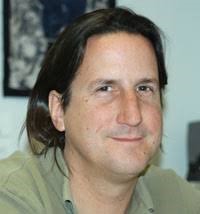A new study published in today’s issue of PLOS Pathogens is the first to link SARS-CoV-2 specific T cells to lung function and those who suffer from long-term COVID symptoms. Long COVID currently affects hundreds of millions of Americans.
The study found that patients suffering from Long COVID, or post-acute sequelae SARS-CoV-2 infection (PASC), had virus-specific T cell levels more than 100 times higher than those who recovered from the disease.
"The persistence of high numbers of virus-specific T cells in individuals with Long COVID suggests that there may be hidden viral reservoirs that are maintaining and leading to long-term symptoms," said senior author Brent Palmer, PhD, associate professor of allergy and clinical immunology in the University of Colorado School of Medicine at the University of Colorado Anschutz Medical Campus.
"Current treatments for Long COVID, out of necessity, are focused on addressing specific symptoms and not the root cause of the illness," Palmer said. "This evidence points toward the reservoirs as a significant factor causing Long COVID, which can guide future treatments.”
The findings could shift treatment recommendations to focus on vaccines and antiviral medications that could reduce Long COVID symptoms and help clear the virus from people’s system.
The study addressed the cause of Long COVID by better understanding the adaptive immune response to the SARS-CoV-2. The research team’s findings linked systemic inflammation, persistent pulmonary symptoms and reduced lung function to the presence of high numbers of SARS-CoV-2 specific T cells. During the primary infection, these virus-specific T cells are important for controlling infection, but in the context of Long COVID, they are associated with ongoing symptoms, shortness of breath and lung damage.
Changing the focus of treatment
The Brookings Institution estimates more than 1 million Americans are out of work due to Long COVID. In addition, with over 500 million people infected during the pandemic so far, and 20% to 30% of them developing Long COVID, that leaves upwards of 15 million people suffering from Long COVID worldwide. This represents a serious burden to the population and healthcare system.
“Our findings hope to help change treatment focus to therapies that improve viral clearance. For example, antiviral medications like Paxlovid could help reduce symptoms in those burdened by Long COVID, helping to clear the virus out of their system and get them back to a more normal life,” Palmer said.
The study also looked at two key biomarkers that are used to measure inflammation in the body. Researchers found that the higher the levels of SARS-CoV-2 T cells, the higher the measure of inflammation, indicating that these T cells could also play a role in driving chronic inflammation and other Long COVID symptoms.
Without continued studies that focus on the origin of Long COVID, people, the workforce and the healthcare system will continue to suffer, Palmer said.
“It’s clear that kitchen sink symptomatic treatments have not solved this problem. We need to continue this research in order to develop specific treatments for those whose lives have been completely uprooted because of a virus we are still working to understand,” Palmer said.
Palmer and his team have applied for a National Institutes of Health (NIH) grant to further this research. If approved, they would be able to wash cells out of the lungs using a noninvasive procedure that would allow them to compare the cells of patients with Long COVID to the cells of people without the virus.


.png)
.jpg)
